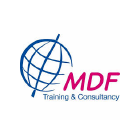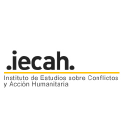WORKING WITH DG ECHO AS AN NGO PARTNER | FPA 2014 - 2020
THE WORLDWIDE DECISION AND HIPS
THE WORLDWIDE DECISION (WWD)
Since 2012 the European Commission adopts one worldwide decision per year. Through this document it allocates, for the current year, the necessary funds for the implementation of humanitarian aid actions in the field of:
- natural disasters and man-made humanitarian crises
- large scale emergency or a sudden onset
- small scale disaster
- disaster preparedness
- epidemic
- enhancing local capacities to cope and respond, increasing resilience and reducing vulnerability
- strengthening the global humanitarian preparedness and response capacity
- increasing awareness, understanding of and support for humanitarian issues
- high-quality training for humanitarian professionals
- transport services
- provision of expertise to assist policy development and reinforcing networking between humanitarian nongovernmental organisations
- contributing to the resilience
Once adopted, the text of the Worldwide Decision is published on APPEL, in the dedicated section, and then on the section "Funding for Humanitarian Aid" of the DG ECHO website.
The Worldwide Decision starts on the 1st January of the year.
This Decision is revised two times a year (in principles on May and September) and its amount can be increased accordingly to the needs on the grounds and accordingly to the availability of money of the operational reserve of the current year.
WORLDWIDE DECISION CONTENTS
The Worldwide decision is the legal document that, each year, defines the needs to be addressed and indicatively allocates the funds per region and country.
It is composed by:
The Decision indicating:
- The objectives of humanitarians Actions (Art.1)
- The amounts of the Union contribution (Art. 2)
- The methods of implementation - namely direct and indirect management (Art. 3)
- The Flexibility clause - namely the possibility to reallocate part the funds among the different objectives of the decision (Art. 4)
The Annex (including the Appendices) with the provisions applying for
- grants (implemented under direct management) (point 2),
- procurement (implemented under direct management) (point 3),
- actions implemented under indirect management (point 4),
- contributions to trust funds (point 5),
- other actions or expenditure (point 6)
- Appendix I : Allocations by actions in Euro
- Appendix II: Indicative allocations by regions/countries
The Worldwide decision represents the legal commitment of the Commission for funding Humanitarian operations. To know how these funds will be concretely allocated within each country/region of operation, ECHO Partners shall refer to The Humanitarian Implementing Plans (HIPs).
THE HIP AND THE TECHNICAL ANNEX
The HIP is composed by two documents:
The HIP
This part is composed by three sections presenting: the context of operations, the humanitarian needs on the ground, the envisaged humanitarian response at local, country, international and European level, and, finally, the information related to LRRD, coordination and transition.
In case the HIP needs to be revised, a Section 0 may be added at the beginning.
The Technical Annex
The Technical Annex is divided into three sections providing Financial, Administrative and Operational information
-
Section 1 “Contacts”: contains addresses of the ECHO Operational Unit in charge and the ECHO contact persons at the HQ and field level.
-
Section 2 “Financial information” establishes the indicative amount allocated by the HIP and describes how this amount is divided among the different objectives and budget lines
-
Section 3 point 3.1, Administrative information provides the administrative information regarding each assessment round ( indicative amount allocated, description of the humanitarian aid interventions relating to the round, start date of eligibility and implementation period, expected duration of the Action, potential Partners, minimum information to be provided in the Single Form and indicative date for the receipt of the requested information).
-
Finally, the point 3.2 “Operational requirements” defines the criteria that will be used to assess the proposals and lists the operational guidelines and all the relevant aspects to be taken into account in the designing of the action.
The Technical Policies Annex
This annex , is the same for all the HIPs and outlines the general principles, policy framework, assistance modalities, cross-cutting issues as well as thematic guidelines that need to be taken into account by DG ECHO partners in the design of humanitarian operations supported by DG ECHO
THE REVISIONS OF THE HIPS
The HIP is not a static document; it can be revised and updated whenever there is a need.
In fact, in case additional needs and/or funding appear during the year, a new version of the HIP will be published without having to go again through the whole financing decision adoption process.
In the new version of the HIP, will be added a section 0 at the beginning of the document, giving an overview on the state of the implementation of the HIP, identifying the new issues to be tackled and informing the partners on the planned procedure for the allocation of funds.
This revision procedure allows ECHO to maintain, in the same document, a global and updated view about the current situation on the field.
NB Since all the communications concerning the publication/updates of the HIPs will be done electronically, ECHO asks the partners to verify the e-mail addresses listed in APPEL in order to ensure they receive these information.
MEETING TO DISCUSS HIPS
Such meetings take place at field level. Additional meetings may be organised at ECHO offices in Brussels for high profile crisis. The purpose of these meetings is either to discuss with partners the content of the future HIPs or to present the final version of the HIPs. Partners will find information on those meetings at ECHO website





